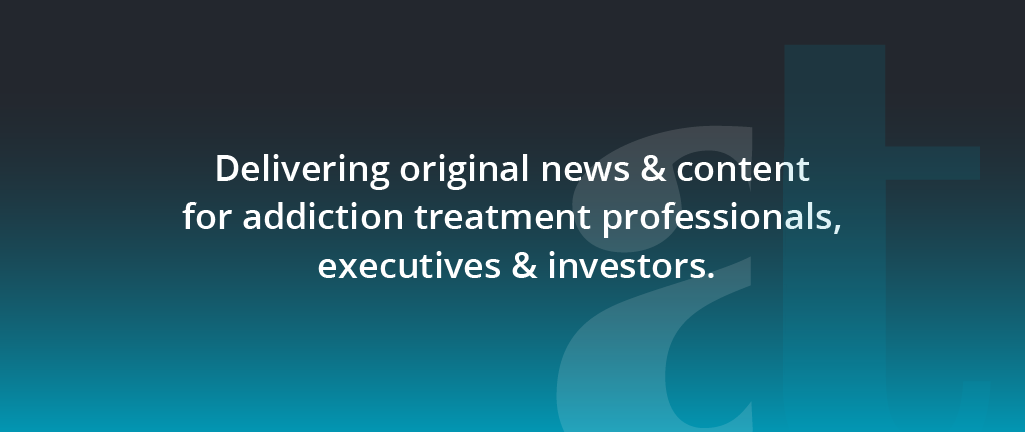Want to read more content like this? Subscribe to Addiction Treatment Business today!
A new partnership between Spring Health and 2Morrow Health will bring 2Morrow Health’s behavioral-based smoking cessation program into the Spring Health platform.
Almost 30 million adults in the U.S. are current tobacco smokers, and smoking employees cost employers an average of $5,800 more per year in healthcare and lost productivity, according to Spring and 2Morrow.
2Morrow’s tobacco cessation program takes a “holistic approach” to care, including access to coaches and additional focuses on weight and stress management. Users can also receive nicotine replacement therapy (NRT) to mitigate physical withdrawal symptoms.
“People with depression and anxiety utilize tobacco at a much higher percentage,” Sean Bell, general manager of behavioral health at Spring Health, told Behavioral Health Business. “Think about the categories of people we work with in general, often there’s going to be a higher comorbidity with tobacco and we wanted a best-in-class offering.”
Spring Health is a comprehensive mental health solution for employers and health plans and now serves over 4,500 clients, including General Mills, Bain, and Instacart. The unicorn company raised $71 million in April 2023, bringing its valuation to $2.5 billion.
Spring patients using the smoking cessation program can work with a 2Morrow coach and choose to also work with a Spring therapist to address co-occurring mental health needs. The program also supports multiple modalities for people who prefer digital tools or a phone call with a coach.
Kirkland, Washington-based 2Morrow Health is a digital health platform with three programs: coping and self-care, tobacco cessation and weight control, and a wellbeing program that bundles these topics with an additional focus on chronic pain.
Employers can choose to sign up for coaching only or can opt to include NRT, which Spring “strongly advises as the best evidence-based approach to helping people quit tobacco.”
Common forms of NRT include nicotine patches or gum.
“While 2Morrow’s clinically tested programs already blend behavioral science, coaching and NRT to aid quitting, this collaboration enables our coaches to seamlessly connect participants with additional mental health services,” Jo Masterson, CEO at 2Morrow, said in a statement.
2Morrow’s digital model has undergone multiple randomized control trials to demonstrate effective quit rates. This is crucial because other programs may only demonstrate engagement, which does not indicate quit rate, Bell said.
Smoking remains the leading cause of preventable disease and death in the U.S. and cost the country more than 600 billion in 2018, according to the Centers for Disease Control and Prevention (CDC).
The habit seriously impacts smokers’ wallets as well as employers’, costing individual smokers an average of $1.4 million through buying cigarettes, medical costs and lower wages.
Though smoking rates have dropped overall, people with mental health conditions are twice as likely to smoke compared to the general population. People with mental health conditions also smoke more cigarettes per day, are more heavily addicted and are more likely to relapse.
“Folks typically have a comorbidity in terms of addiction and tobacco use,” Bell said. “But the health issues associated with tobacco are so big and meaningful that we want to think holistically about that person’s physical and mental health.”
Specific populations, including blue-collar workers and nurses, are more likely to be smokers, making tobacco use a health equity issue, according to Bell. People who smoke do not all have enough access to care, Bell said, because care offerings vary so much based on different types of insurance and because many people are under-insured.
For employers who do offer tobacco cessation programs, the programs have one of the best ROIs in the behavioral health space.
“Tobacco cessation is what I would call a no-brainer in a benefits package,” Bell said. “[Employers] are dealing with a host of challenges in their organizations based on what’s going on in the world today. … Our employers are trying to figure out what challenges they think they can address now. We think offering [smoking cessation] in conjunction with a mental health care offering is the right thing to do.”
Despite an impressive ROI, smoking is under-discussed in the behavioral health field, Bell said, because smoking rates have dropped significantly thanks to activism in the field.
The 2Morrow collaboration is the latest in a line of partnerships announced by Spring Health. In October 2023, the company announced deals with Highmark Health and Eleanor Health.
The company also expanded its service lines in the past year, including new programs for eating disorder treatment and specialized care for teens.



